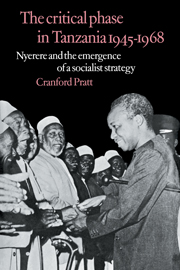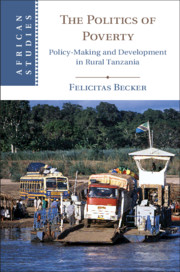The Critical Phase in Tanzania
'How can a country which is poor, with few socialists and without either a strong proletariat or a radicalised peasantry be led to a socialist transformation of its values and institutions?' In January 1967 Julius Nyerere, President of Tanzania, made this the central preoccupation of his government and of his party, the Tanganyika African National Union. The emergence of that socialist commitment provides the central focus for this study of political leadership in Tanzania. Many independent countries are in the 'critical phase' in which the aspirations of their peoples race ahead of their productive capabilities. This study of the forces and considerations that led to the emergence of a democratic and socialist strategy of development in Tanzania is therefore of wide relevance elsewhere in Africa and the developing world.
Product details
May 2009Paperback
9780521110723
328 pages
229 × 152 × 19 mm
0.48kg
Available
Table of Contents
- Preface
- 1. Themes and perspectives
- 2. British strategies and African nationalism in Tanganyika
- 3. Shifting strategies 1958–61
- 4. Nyerere's political thought 1954–62
- 5. The operation and abandonment of a dependent relationship 1959–62
- 6. A loss of innocence 1963–8
- 7. The prelude to a socialist strategy 1963–7
- 8. The commitment to socialism 1967–8
- Notes
- Bibliography
- Index
- Plates.










